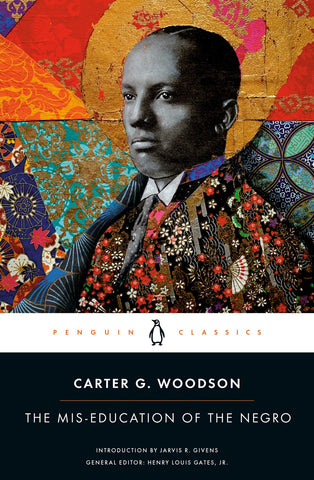The most influential work by “the father of Black history”, reflecting the long-standing tradition of antiracist teaching pioneered by Black educators
A Penguin Classic
The Mis-education of the Negro (1933) is Woodson’s most popular classic work of Black social criticism, drawing on history, theory, and memoir. As both student and teacher, Woodson witnessed distortions of Black life in the history and literature taught in schools and universities. He identified a relationship between these distortions in curriculum and the violence circumscribing Black life in the material world, declaring, “There would be no lynching if it did not start in the schoolroom.” Woodson’s primary focus was the impact dominant modes of schooling had on Black youth. This systematic process of mis-education undermined Black people’s struggles for freedom and justice, and it was an experience that scholars before and after Woodson recognized and worked to challenge.
Woodson argued that students, teachers, and leaders needed to be educated in a manner that was accountable to Black experiences and lived realities, both past and present. This edition includes an appendix of selected letters and articles by Woodson, and Suggestions for Further Reading.
A Penguin Classic
The Mis-education of the Negro (1933) is Woodson’s most popular classic work of Black social criticism, drawing on history, theory, and memoir. As both student and teacher, Woodson witnessed distortions of Black life in the history and literature taught in schools and universities. He identified a relationship between these distortions in curriculum and the violence circumscribing Black life in the material world, declaring, “There would be no lynching if it did not start in the schoolroom.” Woodson’s primary focus was the impact dominant modes of schooling had on Black youth. This systematic process of mis-education undermined Black people’s struggles for freedom and justice, and it was an experience that scholars before and after Woodson recognized and worked to challenge.
Woodson argued that students, teachers, and leaders needed to be educated in a manner that was accountable to Black experiences and lived realities, both past and present. This edition includes an appendix of selected letters and articles by Woodson, and Suggestions for Further Reading.

